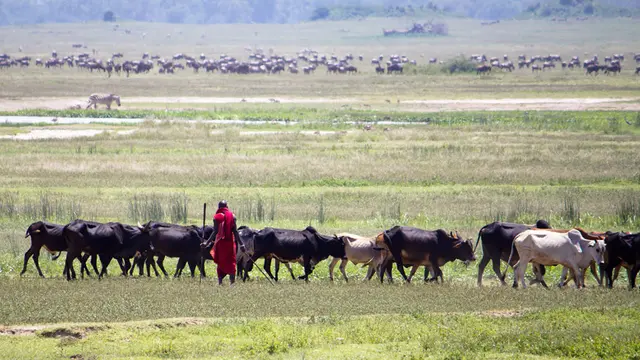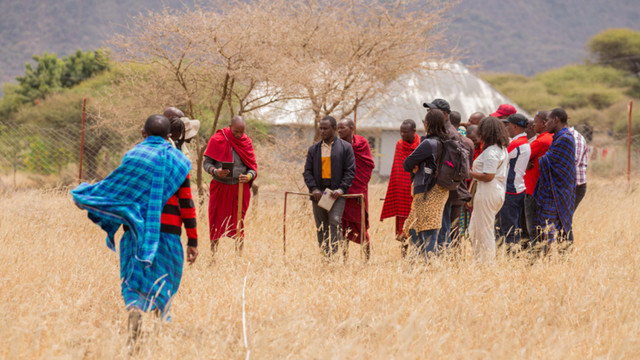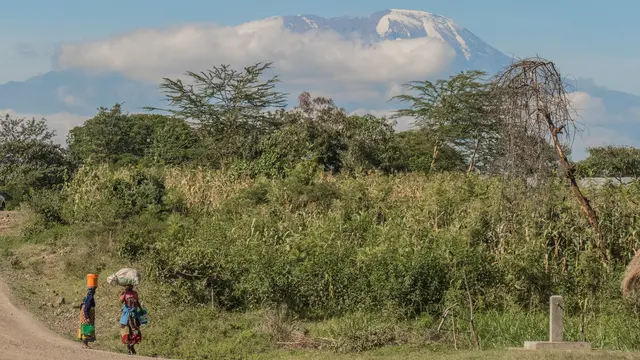CBA14 opens with LDC chair call for greater ambition on climate change
The chair of the Least Developed Countries negotiating group on climate change warns that climate change impacts are “clear and increasing” and calls for increased urgency and ambition to protect communities.
The 14th International Conference on Community-based Adaptation to Climate Change (CBA14) was today (21 September) opened by Sonam P. Wangdi, chair of the Least Developed Countries (LDC) Group group at the UN climate negotiations.
The LDC Group represents the 47 nations who are most vulnerable to climate change, despite having done the least to cause it.
Wangdi, of Bhutan, said: "Despite the pandemic, the impacts of climate change continue to be clear and increasing. While fires are burning in California, intense flooding has damaged homes and destroyed livelihoods in Sudan, India, Yemen, Bangladesh and many more other locations."
Wangdi said: "The urgency and ambition needed to fully prepare for the future must continue to increase if we are to protect ourselves and our communities."
Because of the coronavirus pandemic, CBA14 is taking place online. Some 500 participants from 77 countries are due to attend the five-day event. Wangdi highlighted the value of linking the international community of practice on climate adaptation despite the pandemic, saying it was “crucially important” to create opportunities for grassroots and community-based adaptation practitioners, researchers and policymakers to come together.
He said: “These moments are central in building the community of practice, networks and knowhow that are necessary to develop complex responses to a complex challenge.
“They ensure that development partners and international organisations can remain grounded, able to learn from those who are most vulnerable, by providing opportunities for them to listen to local solutions and wisdom.”
Adaptation to climate change cannot be successful unless it builds on the knowledge and understanding of the people who are most affected by climate risks – Sonam P. Wangdi
Panel discussion
The opening plenary of the conference featured an international panel of speakers, moderated by Manish Bapna, executive director and vice president of the World Resources Institute.
The first speaker was Rosemary Atieno, who leads the NGO Community Mobilization for Positive Empowerment (COMPE) in Kenya. She reported on the impacts of COVID-19 on Kenyan communities and highlighted the importance of Indigenous knowledge and grassroots action on climate change.
The next speaker, Sheela Patel, chair of the international network Slum Dwellers International (SDI), spoke about the importance of connecting large national and international initiatives with vulnerable communities. SDI is a network of urban-poor organisations working in 500 cities in 33 countries across Africa, Asia, and Latin America. Patel said CBA14 had an opportunity to bring together and aggregate the voices of grassroots communities as they engage with policymakers.
Dr Muhammad Musa, executive director of the NGO BRAC International, which works in 12 countries in Asia and Africa, said it was important to acknowledge and respect the knowledge and skills of local communities – and move away from the label of ‘beneficiary' and towards partnerships.
Live polling on community adaptation
After the panel discussion, CBA participants were invited to share their perspectives on the future of locally-led action using the 'Mentimeter' voting platform.
Participants were asked whether the COVID-19 pandemic and the related economic crisis accelerate or impede locally-led action. A narrow marjority of participants thought the pandemic would accelerate climate action.
The second question asked participants to identify the barriers that need to be tackled in order to make progress. Their answers included: trust, good governance, power imbalances, finance, and many more.
The third question asked about the top priorities for a community of practice on local adaptation for the next decade. Just over one third of participants said fostering connections between donors, CSOs, and grassroots organisations is the top priority.
Closing remarks
The plenary was closed by Saleemul Huq, the director of the International Centre for Climate Change and Development (ICCCAD) in Bangladesh. Huq said the pandemic, and the sharp increase in digital working, was providing a new opportunity for people to link up globally to address climate impacts. He urged CBA14 participants to engage online to find ways to continue dialogues and take locally-led adaptation forward as a community of practice.
This opening session was open to the public, and was designed to set the stage for an engaging, interactive conference.
Watch the opening plenary session of CBA14 above or on IIED's YouTube channel.
Programme and key themes
CBA14 takes place from 21 September to 25 September 2020. The conference has five key themes:
- The climate finance theme will explore how public and private sector finance can be accountable and transparently mobilised to scale up climate action while remaining inclusive.
- The adaptation technology theme will explore how to bring adaptation technologies to scale at national level and be integrated across policy and finance. Building on previous years’ CBA messages, it will explore how to leverage adaptation technologies for greater investment from a range of actors while still ensuring that the knowledge and perspective of communities is used to guide how those technologies should benefit them.
- The responsive policy theme focuses on how policy can respond to the needs of the most vulnerable. This year it will focus on the role of social movements in driving more responsive policy that can inform local climate action.
- The nature-based solutions (NbS) theme will look at how solutions can be made to work for people, nature and climate, recognising that biodiversity loss is a challenge that is equal that of climate change and that we need to consider these issues together rather than separately if we are to have meaningful impact.
- The youth inclusion theme will be led by youth organisations and young people and seek to understand how we can properly incorporate the views of young people so that they can have a greater say in the policies that will shape their future.


